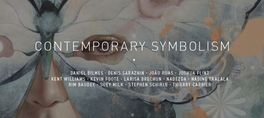Mon April 13 - Thu April 30, 2020
I Hate the Internet: Techno-Dystopian Malaise and Visions of Rebellion
SEE EVENT DETAILS
I Hate the Internet: Techno-Dystopian Malaise and Visions of Rebellion
Zach Blas' Contra-Internet: Jubilee 2033 (2018) audaciously re-imagines scenes from Derek Jarman's 1978 queer punk masterpiece Jubilee, replacing Jarman's vision of a deliriously devastated Britain with one of Silicon Valley in flames. In Blas' take on Jarman's allegory, the acid-tripping trio of Ayn Rand (played by underground icon Susanne Sachsse), Alan Greenspan and painter Joan Mitchell bear witness to the internet's end. As Apple, Facebook and Google campuses burn, techies, hackers and wannabes alike are made to pay for their complicity, and disembodied avatars--including a "contra-sexual, contra-internet prophet" portrayed by performance artist Cassils--present histories of techno-surveillance and enact purgative gestures of erotic rebellion.
This screening of Blas' Jubilee 2033 is accompanied by a quartet of works similarly examining themes of techno-dysphoria and which consider the relevance of emotion and subjectivity in an increasingly mediated and chillingly trans-humanist culture. Jesse McLean's The Invisible World (2012) catalogs the video genres of Web 2.0--notably YouTube "Haul" and "Unpacking" videos--while considering our attachments to our objects and our bodies in an increasingly dematerialized social landscape. Mike Hoolboom's Instructions for Robots (2019) considers the interior lives and sexualities of a cadre of emotion-laden robots exploring avant-garde filmmaking in a Cuban art school. Peter Burr's Drop City (2019)--named for Colorado's famed (and failed) early counter-cultural art commune--presents a looping landscape of electronic melancholy while continuing his exploration of contemporary video game aesthetics. Opening this program of 21st Century despair is James Duesing's 1990 work of computer animation Maxwell's Demon, an uncannily resonant missive from the internet's early daze. (Steve Polta)
Support Cinematheque! Support Artists! During these uncertain times (as always), Cinematheque makes it a priority to compensate artists for works presented at live events as well as in online screenings. Donations in support of our work are welcome. If you are able, please consider a one-time or recurring donation to support the ongoing work of San Francisco Cinematheque. Please make a tax-deductible donation here.
Maxwell's Demon (1990) by James Duesing
A post-apocalyptic computer animated vision of humanity lost in an industrial wasteland, Maxwell's Demon was animated on a low-cost, consumer computer model--an IBM PC. The tape takes its title from an early 20th-century physics theory postulating the existence of an impossible intelligence, a being that knew the exact location, energy, and direction of every particle in the entire universe--something akin to your home computer, but a lot bigger. (James Duesing) Maxwell's Demon is distributed by Video Data Bank.
Drop City (2019) by Peter Burr
Drop City is a portrait of a computer desktop community. It takes its name from the first rural hippy commune in America, a settlement in southern Colorado that formed in 1965 constructed of discarded junk, salvaged car tops, and other detritus fashioned into inventive living structures. A decade later Drop City was completely abandoned. Nothing is left of it today. (Peter Burr)
Instructions for Robots (2019) by Mike Hoolboom
Made at the international film school in Cuba (EICTV) at the start of the rainy season. A tender re-examination of bodies from the first generation of Artificial Intelligence robots programmed with a full range of emotions. Electronic revolt and resistance. Secret messages encoded within robot diary fragments offer possible futures for post-human societies. (Mike Hoolboom)
The Invisible World (2012) by Jesse McLean
The present world is packed with stuff. Lifeless objects are imbued with emotional significance and possessions linked with personal identities, even as these objects bear a distant witness to human struggles. The future portends an intangible world of virtual experience. How will we relate our materialist tendencies? What happens to our things after we are gone? In this work, materialism and emotional presence are considered through the lens of time. Time-based materials are collected and collaged, revealing the filmmaker's own hoarding tendencies. YouTube genres are parsed, including "haul" videos and unboxing videos, and the results suggest how materialist tendencies have found a way to continue in the virtual age and how the need to own is often paired with the need to relate. (Jesse McLean) The Invisible World is distributed by Video Data Bank.
Contra-Internet: Jubilee 2033 (2018) by Zach Blas
Contra-Internet: Jubilee 2033 reimagines Derek Jarman's 1978 queer punk film Jubilee, starring Susanne Sachsse and Cassils. It follows author Ayn Rand (Sachsse) and members of her Collective, including economist Alan Greenspan, on an acid trip in 1955. Guided by an artificial intelligence named Azuma, they are transported to a dystopian future Silicon Valley. As Apple, Facebook, and Google campuses burn, Azuma reveals that Ayn has become a celebrity philosopher to tech executives. Rand and The Collective are introduced to the internet and witness the death of Silicon Valley elite. Inside an occupied office of Palantir Technologies, the group encounters Nootropix (Cassils), a contra-sexual, contra-internet prophet. Seeking respite, Rand and The Collective find themselves at Silicon Beach. (Zach Blas) Contra-Internet: Jubilee 2033 is distributed by Video Data Bank.
show less
Zach Blas' Contra-Internet: Jubilee 2033 (2018) audaciously re-imagines scenes from Derek Jarman's 1978 queer punk masterpiece Jubilee, replacing Jarman's vision of a deliriously devastated Britain with one of Silicon Valley in flames. In Blas' take on Jarman's allegory, the acid-tripping trio of Ayn Rand (played by underground icon Susanne Sachsse), Alan Greenspan and painter Joan Mitchell bear witness to the internet's end. As Apple, Facebook and Google campuses burn, techies, hackers and wannabes alike are made to pay for their complicity, and disembodied avatars--including a "contra-sexual, contra-internet prophet" portrayed by performance artist Cassils--present histories of techno-surveillance and enact purgative gestures of erotic rebellion.
This screening of Blas' Jubilee 2033 is accompanied by a quartet of works similarly examining themes of techno-dysphoria and which consider the relevance of emotion and subjectivity in an increasingly mediated and chillingly trans-humanist culture. Jesse McLean's The Invisible World (2012) catalogs the video genres of Web 2.0--notably YouTube "Haul" and "Unpacking" videos--while considering our attachments to our objects and our bodies in an increasingly dematerialized social landscape. Mike Hoolboom's Instructions for Robots (2019) considers the interior lives and sexualities of a cadre of emotion-laden robots exploring avant-garde filmmaking in a Cuban art school. Peter Burr's Drop City (2019)--named for Colorado's famed (and failed) early counter-cultural art commune--presents a looping landscape of electronic melancholy while continuing his exploration of contemporary video game aesthetics. Opening this program of 21st Century despair is James Duesing's 1990 work of computer animation Maxwell's Demon, an uncannily resonant missive from the internet's early daze. (Steve Polta)
Support Cinematheque! Support Artists! During these uncertain times (as always), Cinematheque makes it a priority to compensate artists for works presented at live events as well as in online screenings. Donations in support of our work are welcome. If you are able, please consider a one-time or recurring donation to support the ongoing work of San Francisco Cinematheque. Please make a tax-deductible donation here.
Maxwell's Demon (1990) by James Duesing
A post-apocalyptic computer animated vision of humanity lost in an industrial wasteland, Maxwell's Demon was animated on a low-cost, consumer computer model--an IBM PC. The tape takes its title from an early 20th-century physics theory postulating the existence of an impossible intelligence, a being that knew the exact location, energy, and direction of every particle in the entire universe--something akin to your home computer, but a lot bigger. (James Duesing) Maxwell's Demon is distributed by Video Data Bank.
Drop City (2019) by Peter Burr
Drop City is a portrait of a computer desktop community. It takes its name from the first rural hippy commune in America, a settlement in southern Colorado that formed in 1965 constructed of discarded junk, salvaged car tops, and other detritus fashioned into inventive living structures. A decade later Drop City was completely abandoned. Nothing is left of it today. (Peter Burr)
Instructions for Robots (2019) by Mike Hoolboom
Made at the international film school in Cuba (EICTV) at the start of the rainy season. A tender re-examination of bodies from the first generation of Artificial Intelligence robots programmed with a full range of emotions. Electronic revolt and resistance. Secret messages encoded within robot diary fragments offer possible futures for post-human societies. (Mike Hoolboom)
The Invisible World (2012) by Jesse McLean
The present world is packed with stuff. Lifeless objects are imbued with emotional significance and possessions linked with personal identities, even as these objects bear a distant witness to human struggles. The future portends an intangible world of virtual experience. How will we relate our materialist tendencies? What happens to our things after we are gone? In this work, materialism and emotional presence are considered through the lens of time. Time-based materials are collected and collaged, revealing the filmmaker's own hoarding tendencies. YouTube genres are parsed, including "haul" videos and unboxing videos, and the results suggest how materialist tendencies have found a way to continue in the virtual age and how the need to own is often paired with the need to relate. (Jesse McLean) The Invisible World is distributed by Video Data Bank.
Contra-Internet: Jubilee 2033 (2018) by Zach Blas
Contra-Internet: Jubilee 2033 reimagines Derek Jarman's 1978 queer punk film Jubilee, starring Susanne Sachsse and Cassils. It follows author Ayn Rand (Sachsse) and members of her Collective, including economist Alan Greenspan, on an acid trip in 1955. Guided by an artificial intelligence named Azuma, they are transported to a dystopian future Silicon Valley. As Apple, Facebook, and Google campuses burn, Azuma reveals that Ayn has become a celebrity philosopher to tech executives. Rand and The Collective are introduced to the internet and witness the death of Silicon Valley elite. Inside an occupied office of Palantir Technologies, the group encounters Nootropix (Cassils), a contra-sexual, contra-internet prophet. Seeking respite, Rand and The Collective find themselves at Silicon Beach. (Zach Blas) Contra-Internet: Jubilee 2033 is distributed by Video Data Bank.
I Hate the Internet: Techno-Dystopian Malaise and Visions of Rebellion
Zach Blas' Contra-Internet: Jubilee 2033 (2018) audaciously re-imagines scenes from Derek Jarman's 1978 queer punk masterpiece Jubilee, replacing Jarman's vision of a deliriously devastated Britain with one of Silicon Valley in flames. In Blas' take on Jarman's allegory, the acid-tripping trio of Ayn Rand (played by underground icon Susanne Sachsse), Alan Greenspan and painter Joan Mitchell bear witness to the internet's end. As Apple, Facebook and Google campuses burn, techies, hackers and wannabes alike are made to pay for their complicity, and disembodied avatars--including a "contra-sexual, contra-internet prophet" portrayed by performance artist Cassils--present histories of techno-surveillance and enact purgative gestures of erotic rebellion.
This screening of Blas' Jubilee 2033 is accompanied by a quartet of works similarly examining themes of techno-dysphoria and which consider the relevance of emotion and subjectivity in an increasingly mediated and chillingly trans-humanist culture. Jesse McLean's The Invisible World (2012) catalogs the video genres of Web 2.0--notably YouTube "Haul" and "Unpacking" videos--while considering our attachments to our objects and our bodies in an increasingly dematerialized social landscape. Mike Hoolboom's Instructions for Robots (2019) considers the interior lives and sexualities of a cadre of emotion-laden robots exploring avant-garde filmmaking in a Cuban art school. Peter Burr's Drop City (2019)--named for Colorado's famed (and failed) early counter-cultural art commune--presents a looping landscape of electronic melancholy while continuing his exploration of contemporary video game aesthetics. Opening this program of 21st Century despair is James Duesing's 1990 work of computer animation Maxwell's Demon, an uncannily resonant missive from the internet's early daze. (Steve Polta)
Support Cinematheque! Support Artists! During these uncertain times (as always), Cinematheque makes it a priority to compensate artists for works presented at live events as well as in online screenings. Donations in support of our work are welcome. If you are able, please consider a one-time or recurring donation to support the ongoing work of San Francisco Cinematheque. Please make a tax-deductible donation here.
Maxwell's Demon (1990) by James Duesing
A post-apocalyptic computer animated vision of humanity lost in an industrial wasteland, Maxwell's Demon was animated on a low-cost, consumer computer model--an IBM PC. The tape takes its title from an early 20th-century physics theory postulating the existence of an impossible intelligence, a being that knew the exact location, energy, and direction of every particle in the entire universe--something akin to your home computer, but a lot bigger. (James Duesing) Maxwell's Demon is distributed by Video Data Bank.
Drop City (2019) by Peter Burr
Drop City is a portrait of a computer desktop community. It takes its name from the first rural hippy commune in America, a settlement in southern Colorado that formed in 1965 constructed of discarded junk, salvaged car tops, and other detritus fashioned into inventive living structures. A decade later Drop City was completely abandoned. Nothing is left of it today. (Peter Burr)
Instructions for Robots (2019) by Mike Hoolboom
Made at the international film school in Cuba (EICTV) at the start of the rainy season. A tender re-examination of bodies from the first generation of Artificial Intelligence robots programmed with a full range of emotions. Electronic revolt and resistance. Secret messages encoded within robot diary fragments offer possible futures for post-human societies. (Mike Hoolboom)
The Invisible World (2012) by Jesse McLean
The present world is packed with stuff. Lifeless objects are imbued with emotional significance and possessions linked with personal identities, even as these objects bear a distant witness to human struggles. The future portends an intangible world of virtual experience. How will we relate our materialist tendencies? What happens to our things after we are gone? In this work, materialism and emotional presence are considered through the lens of time. Time-based materials are collected and collaged, revealing the filmmaker's own hoarding tendencies. YouTube genres are parsed, including "haul" videos and unboxing videos, and the results suggest how materialist tendencies have found a way to continue in the virtual age and how the need to own is often paired with the need to relate. (Jesse McLean) The Invisible World is distributed by Video Data Bank.
Contra-Internet: Jubilee 2033 (2018) by Zach Blas
Contra-Internet: Jubilee 2033 reimagines Derek Jarman's 1978 queer punk film Jubilee, starring Susanne Sachsse and Cassils. It follows author Ayn Rand (Sachsse) and members of her Collective, including economist Alan Greenspan, on an acid trip in 1955. Guided by an artificial intelligence named Azuma, they are transported to a dystopian future Silicon Valley. As Apple, Facebook, and Google campuses burn, Azuma reveals that Ayn has become a celebrity philosopher to tech executives. Rand and The Collective are introduced to the internet and witness the death of Silicon Valley elite. Inside an occupied office of Palantir Technologies, the group encounters Nootropix (Cassils), a contra-sexual, contra-internet prophet. Seeking respite, Rand and The Collective find themselves at Silicon Beach. (Zach Blas) Contra-Internet: Jubilee 2033 is distributed by Video Data Bank.
read more
Zach Blas' Contra-Internet: Jubilee 2033 (2018) audaciously re-imagines scenes from Derek Jarman's 1978 queer punk masterpiece Jubilee, replacing Jarman's vision of a deliriously devastated Britain with one of Silicon Valley in flames. In Blas' take on Jarman's allegory, the acid-tripping trio of Ayn Rand (played by underground icon Susanne Sachsse), Alan Greenspan and painter Joan Mitchell bear witness to the internet's end. As Apple, Facebook and Google campuses burn, techies, hackers and wannabes alike are made to pay for their complicity, and disembodied avatars--including a "contra-sexual, contra-internet prophet" portrayed by performance artist Cassils--present histories of techno-surveillance and enact purgative gestures of erotic rebellion.
This screening of Blas' Jubilee 2033 is accompanied by a quartet of works similarly examining themes of techno-dysphoria and which consider the relevance of emotion and subjectivity in an increasingly mediated and chillingly trans-humanist culture. Jesse McLean's The Invisible World (2012) catalogs the video genres of Web 2.0--notably YouTube "Haul" and "Unpacking" videos--while considering our attachments to our objects and our bodies in an increasingly dematerialized social landscape. Mike Hoolboom's Instructions for Robots (2019) considers the interior lives and sexualities of a cadre of emotion-laden robots exploring avant-garde filmmaking in a Cuban art school. Peter Burr's Drop City (2019)--named for Colorado's famed (and failed) early counter-cultural art commune--presents a looping landscape of electronic melancholy while continuing his exploration of contemporary video game aesthetics. Opening this program of 21st Century despair is James Duesing's 1990 work of computer animation Maxwell's Demon, an uncannily resonant missive from the internet's early daze. (Steve Polta)
Support Cinematheque! Support Artists! During these uncertain times (as always), Cinematheque makes it a priority to compensate artists for works presented at live events as well as in online screenings. Donations in support of our work are welcome. If you are able, please consider a one-time or recurring donation to support the ongoing work of San Francisco Cinematheque. Please make a tax-deductible donation here.
Maxwell's Demon (1990) by James Duesing
A post-apocalyptic computer animated vision of humanity lost in an industrial wasteland, Maxwell's Demon was animated on a low-cost, consumer computer model--an IBM PC. The tape takes its title from an early 20th-century physics theory postulating the existence of an impossible intelligence, a being that knew the exact location, energy, and direction of every particle in the entire universe--something akin to your home computer, but a lot bigger. (James Duesing) Maxwell's Demon is distributed by Video Data Bank.
Drop City (2019) by Peter Burr
Drop City is a portrait of a computer desktop community. It takes its name from the first rural hippy commune in America, a settlement in southern Colorado that formed in 1965 constructed of discarded junk, salvaged car tops, and other detritus fashioned into inventive living structures. A decade later Drop City was completely abandoned. Nothing is left of it today. (Peter Burr)
Instructions for Robots (2019) by Mike Hoolboom
Made at the international film school in Cuba (EICTV) at the start of the rainy season. A tender re-examination of bodies from the first generation of Artificial Intelligence robots programmed with a full range of emotions. Electronic revolt and resistance. Secret messages encoded within robot diary fragments offer possible futures for post-human societies. (Mike Hoolboom)
The Invisible World (2012) by Jesse McLean
The present world is packed with stuff. Lifeless objects are imbued with emotional significance and possessions linked with personal identities, even as these objects bear a distant witness to human struggles. The future portends an intangible world of virtual experience. How will we relate our materialist tendencies? What happens to our things after we are gone? In this work, materialism and emotional presence are considered through the lens of time. Time-based materials are collected and collaged, revealing the filmmaker's own hoarding tendencies. YouTube genres are parsed, including "haul" videos and unboxing videos, and the results suggest how materialist tendencies have found a way to continue in the virtual age and how the need to own is often paired with the need to relate. (Jesse McLean) The Invisible World is distributed by Video Data Bank.
Contra-Internet: Jubilee 2033 (2018) by Zach Blas
Contra-Internet: Jubilee 2033 reimagines Derek Jarman's 1978 queer punk film Jubilee, starring Susanne Sachsse and Cassils. It follows author Ayn Rand (Sachsse) and members of her Collective, including economist Alan Greenspan, on an acid trip in 1955. Guided by an artificial intelligence named Azuma, they are transported to a dystopian future Silicon Valley. As Apple, Facebook, and Google campuses burn, Azuma reveals that Ayn has become a celebrity philosopher to tech executives. Rand and The Collective are introduced to the internet and witness the death of Silicon Valley elite. Inside an occupied office of Palantir Technologies, the group encounters Nootropix (Cassils), a contra-sexual, contra-internet prophet. Seeking respite, Rand and The Collective find themselves at Silicon Beach. (Zach Blas) Contra-Internet: Jubilee 2033 is distributed by Video Data Bank.
show less
Date/Times:
55 Taylor Street, San Francisco, CA 94103
The Best Events
Every Week in Your Inbox
From Our Sponsors
UPCOMING EVENTS
Great suggestion! We'll be in touch.
Event reviewed successfully.








